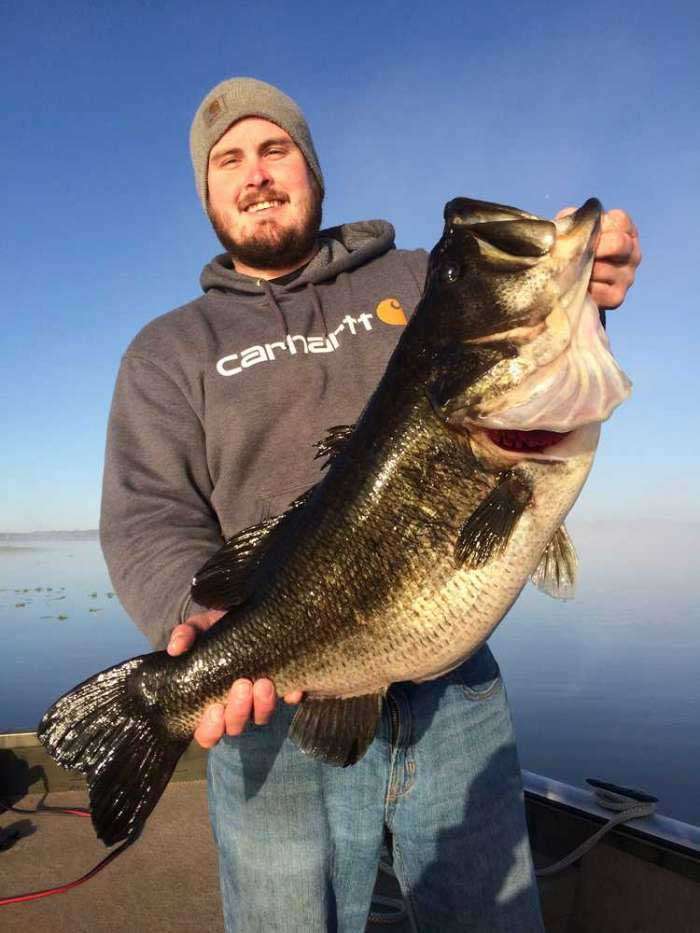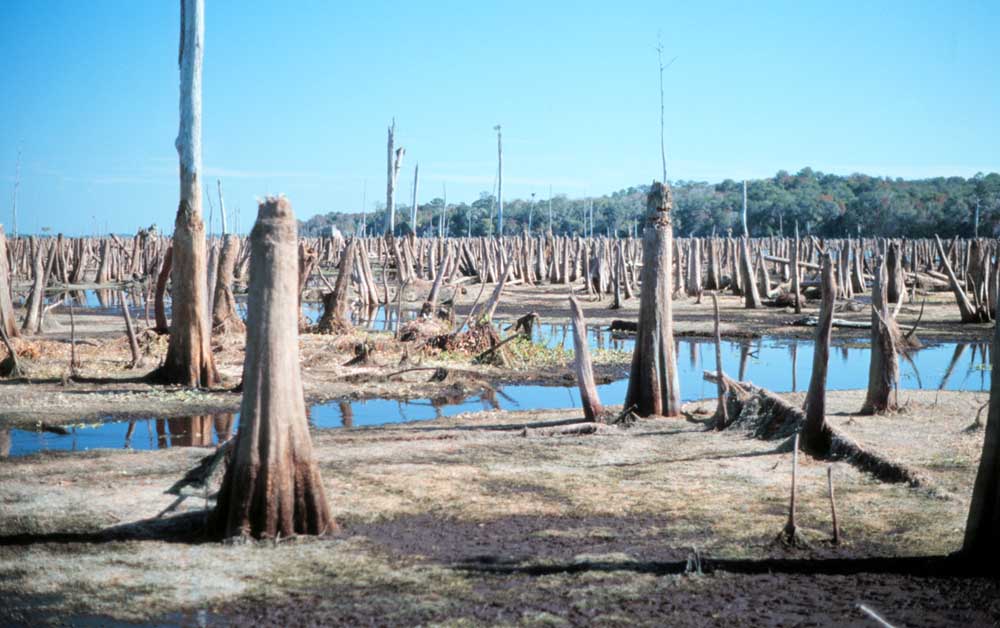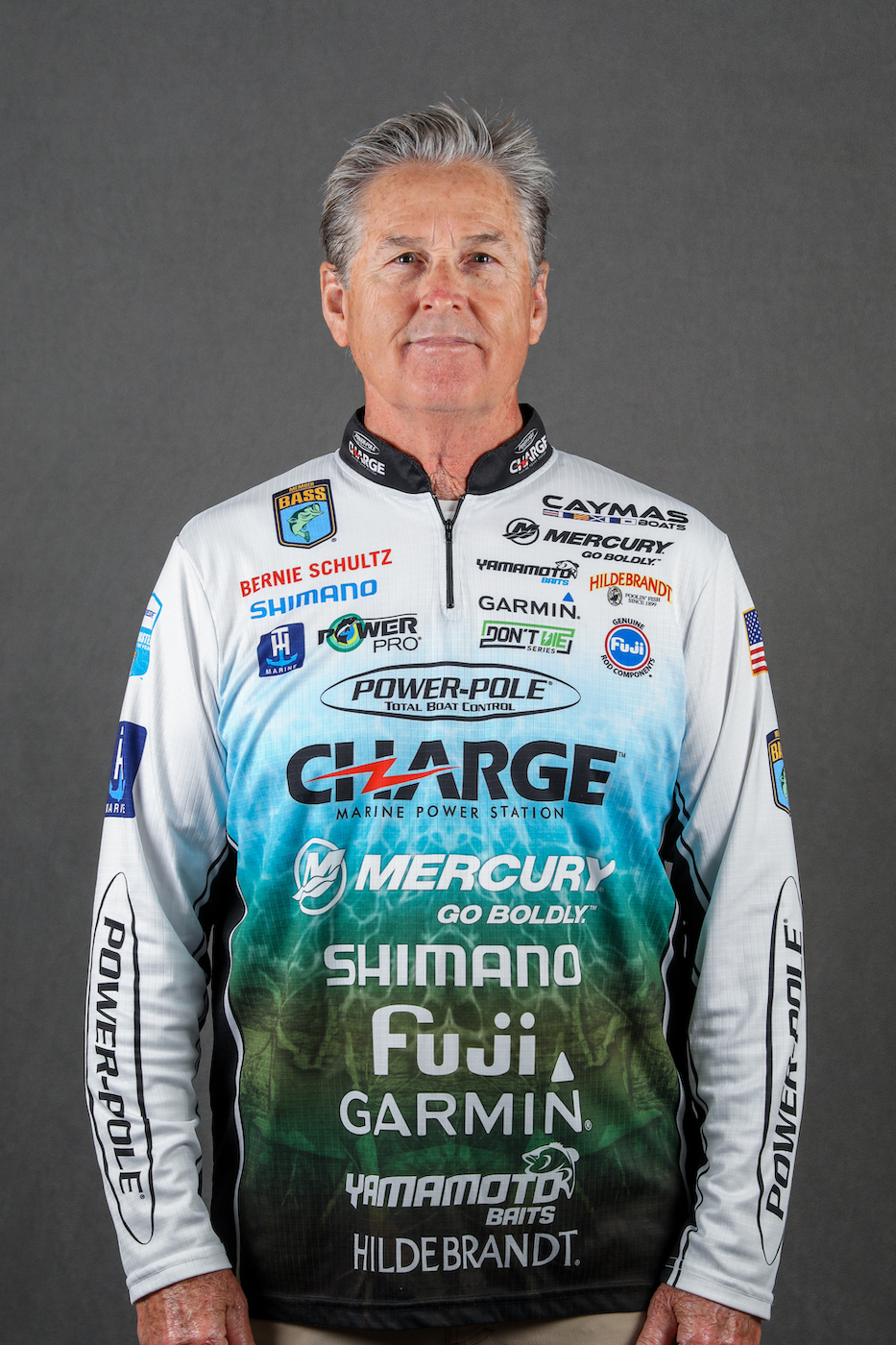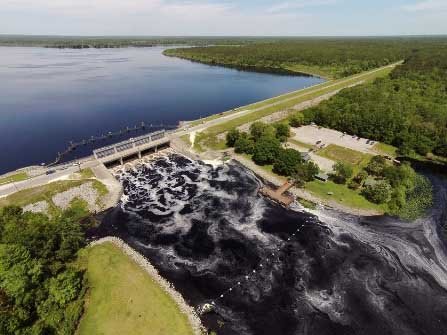
Near my home in North Central Florida lies one of the best fishing destinations on the planet — Rodman Reservoir. Countless big bass are caught from its waters each year, and for its somewhat diminutive size, the lake handles considerable angling pressure.
Impounded in 1968 by the U.S. Army Corps of Engineers, this unique fishery covers a little more than 10,000 surface acres at full pool. And besides supporting a healthy population of fish, it’s also home to countless other species of wildlife, including alligators, turtles, otters, turkey, deer, black bears, eagles and a wide range of waterfowl.
The reservoir is fed by the Ocklawaha River, which in turn is comprised of runoff from the Harris Chain of Lakes and Silver Springs. Although it’s less than 50 years old, the lake has a somewhat prehistoric look. Fields of decaying timber hold giant rafts of hyacinths and water lettuce, and beneath these green canopies lurk some of Florida’s largest bass.
Damned from the start
Since its inception, Rodman Reservoir has been a topic of considerable debate. Environmentalist groups have fought relentlessly to have the dam removed and the river returned to its original state.
An effort spearheaded by Marjorie Harris Carr and the Florida Defenders of the Environment (FDE) was successful in halting the Corps’ plan to create passage from the St. Johns River — through Rodman Reservoir — to the Gulf of Mexico. Since that battle, many others have ensued.
In 1995, a sizable contingency of outdoorsmen formed what’s known as Save Rodman Reservoir, Inc. Its mission since the beginning has been to preserve the lake in its present form, and to provide recreational access for generations to come. Through its efforts and the political backing of former Senator George Kirkpatrick (now deceased and to whom Rodman Dam is dedicated), Save Rodman was able to keep the FDE and its proponents in check. Unfortunately, Rodman’s future is once again in question.
Enter the St. Johns Riverkeeper, a privately funded foundation charged with the protection and preservation of the St. Johns River basin.
In a controversial move, the Riverkeeper has apparently agreed to a deal with area politicians and business leaders in Jacksonville, Fla., and the Jacksonville Port Authority, not to interfere with plans to have the Corps of Engineers dredge the lower St. Johns. Such dredging, it’s claimed, would allow access for larger ships to the city’s port, which in turn would increase commerce and growth.
In exchange, the Riverkeeper expects the Corps to pull the plug on Rodman Reservoir, to supposedly increase flow from the Ocklawaha River. In doing so, they believe it would safeguard the St. Johns from further saltwater intrusion.
But not so fast!
Telling it like it is
According to a recent report by outdoor writer Bob McNally, this is nothing more than blatant misrepresentation by groups with political and entrepreneurial agendas. I tend to agree.
McNally, a resident of Jacksonville, states, “To me, this type of political deal-making is nothing short of environmental extortion, using Rodman Reservoir as a pawn to appease those who want the dam removed while business and political forces get their way by dredging the lower (St. Johns) river.
Draining Rodman and dredging the lower river some 60 miles distant should be completely unrelated issues. In no way should they be tied together. Linking the dismantling of Rodman Dam to dredging the St. Johns River is dividing many people who care about the river who should be united in thought and action to preserve Northeast Florida’s most precious asset.”
McNally cites another critical point — that the Ocklawaha, although dammed, continues to flow through to the St. Johns, and that blowing the dam would only allow a brief influx of stored water to the river below.
A biologist’s perspective
University of Florida fisheries biologist, Mike Allen, sees both sides and feels he has a solution … or at least a compromise. Allen, a 20-year veteran of fisheries management, believes that by modifying the dam so that water can flow freely over it, greater connectivity would result. He says this would not only allow for a more natural flow regime but would also provide migratory species of fish access to the upper reaches of the Ocklawaha.

Allen believes by building a hydrology and fish population model, it would offer tangible proof of his concept and that players from both sides would see the benefits of compromise. But to get there, he’ll need funding and support to launch such a project.
Regardless of whom you side with, the draining of Rodman Reservoir would displace an immeasurable amount of wildlife. And it would eliminate one of the best fisheries in Florida. My sons and I have spent many days on Rodman and the Ocklawaha. To deny future generations such a precious resource would be, to me at least, unconscionable.
If you would like to help protect this bountiful watershed, contact Save Rodman Reservoir, Inc., or visit their Facebook page. Its future is in our hands!
Editor’s Note: A town hall meeting will be held Monday, Feb. 9, at 6 p.m. in the auditorium at CL Overturf 6th Grade Center, 1100 S. 18th Street, Palatka, FL. Feel free to attend and participate.
Follow Bernie Schultz on Facebook or through his website.


